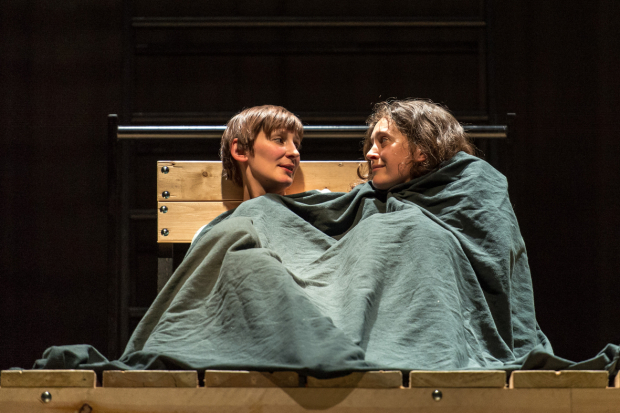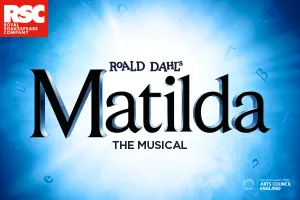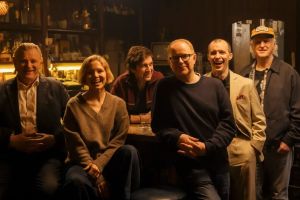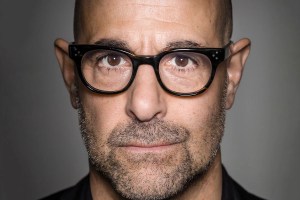Matt Trueman: There's a giant leap from page to stage
Novels don’t make great plays – but that’s not to say they can’t make great theatre – says Trueman

"Adapt or die," the saying goes. When it comes to theatre, however, the reverse is very often true: death by adaptation.
Last weekend, I interviewed Michael Billington about his new book, "The 101 Greatest Plays". (More of which, next week…) One audience member asked whether he had considered adaptations eligible. What about David Edgar’s Nicholas Nickleby? Michael’s reply – quite right – was that novels and plays function differently. Great novels rarely make great plays.
The old formula is that novels are private, plays public. Novels let you into a character’s head and plays keep you outside, trading in outward appearances, in actions and dialogue. There’s truth in that, but I’m not sure it’s that clear-cut. Soliloquies can disrupt that rule of thumb, as can an independent narrator’s voice.
For me, it’s more about rhythm. Great plays hurtle. Great novels meander. Novels rarely have the runaway momentum that the best drama needs. They lack that sense of the inevitable, of something impending. Novels, to paraphrase a history boy, "are just one fucking thing after another." Plays are somehow tighter than that. They have a kind of centripetal force to them. They need a gravitational pull.
The key is time. A play is concentrated into a single block (perhaps broken by an interval), while a novel is more diffuse. A play grabs you by the hand and runs, forcing you to keep pace, but you take your own time with a book, sometimes racing through, sometimes stuttering, chapter by chapter, page by page, even one line at a time.
It was odd, then, to find Michael criticising Sally Cookson’s stage version of Jane Eyre for not doing the things you want a novel to do. "If I couldn’t join in the final cheers," he wrote, "it is because this kind of hectic abridgement offers a demonstration of theatrical skill rather than the moving accumulation of detail you get in great fiction."
I don’t know about you, but I don’t go to the theatre to read a book. I loved Cookson’s staging precisely because of its theatrical skill. Here was Jane Eyre in theatrical form: full of colour and music and feeling and mood, made with bodies not words, with atmosphere not description.
As Cookson herself puts it in the programme: "Our job has been to turn it from a book into a piece of theatre. Essentially that means creating something new – the experience of reading a book is very different to watching a play."
The key, perhaps, is in the words Cookson uses: not a play, but a piece of theatre. There’s a difference: all plays are theatre, but not every piece of theatre is a play. Jane Eyre has elements of drama, but it is mostly theatre: more than the action and interaction of its characters.
Plays based on novels are often staid and stunted. Think of the Birdsong that played the West End a few years ago – "a flat-pack of Sebastian Faulk’s bestseller," said one critic – or the flat-footed Goodnight Mister Tom, which returns this Christmas. It’s no coincidence that the biggest page-to-stage successes are particularly theatrical. War Horse has its puppets, Curious Incident its empty space. Matilda‘s a musical.
The process of adaptation works best, in other words, when you acknowledge that process. The obvious example is Gatz, Elevator Repair Service’s word-for-word version of F. Scott Fitzgerald’s The Great Gatsby. In the folly of that attempt, the staging admits its failure to be the novel, revelling in the dislocation that results. They fashion the fizz of the roaring twenties out of the drudgery of a run-down office. Coffee mugs stand in for champagne saucers, swivel-chairs for Rolls Royces. There was the Don Quijote that took an actual buzzsaw to Cervantes’ epic poem, turning it into a paean for overblown optimism, and the all-male Wuthering Heights (complete with Kate Bush karaoke, obviously) that used Heathcliffe to explore modern masculinity.
Suddenly, you’ve got a piece of art in its own right – theatre that leaps off from a novel to become something else entirely. If an adaptation can’t do that, you might as well stay home and read.













